
Rehab Treatment near Hertfordshire
Are you or a loved one suffering from addiction in Watford, Stevenage, St. Albans or any other area in Hertfordshire? Alcoholism and drug addiction is a mental health condition that must not be left to worsen. Once you suspect that you or a loved one may be addicted to a substance or certain type of behaviour, you should seek help immediately – Call us today and speak to an experienced addiction counsellor.
With the right help, you can fully recover and rebuild your life.
So, which treatment approach is best– and which rehab or community group would be most appropriate for you? We have created this guide to help point you in the right direction as you search for the required assistance. There is a good selection of treatment options available in Hertfordshire so do not despair – start your recovery journey today.
 Services offered by Banbury Lodge Rehab
Services offered by Banbury Lodge Rehab
Banbury Lodge is a rehab operating in a tranquil location in Banbury, Oxfordshire. We provide excellent bespoke rehabilitation services for clients in and around this area.

Some of the services we provide include:
- Drug and Alcohol addiction treatment
- Eating disorder addiction and recovery treatment
- 12 Step Therapy
- Aftercare
- Cognitive Behavioural Therapy
- Individual Therapy
- Family Recovery Programme
- Trauma Therapy
We have a robust team of professionals operating in a world-class facility.
Banbury Lodge is located around 63 miles away from Hertfordshire (depending on town/village). It is approx 90 mins drive via the A422. We provide sober transportation service for anyone that needs it.
 Where is Banbury Lodge Based?
Where is Banbury Lodge Based?
Pros and Cons of Private Rehab?
- Immediate admission 365 days a year
- Medical detox with 24/7 care & support
- Overcome the root causes of addiction
- Experienced team of doctors & therapists
- Personalised rehabilitation programme
- Fitness and nutrition programme
- Look, feel, sleep better & regain confidence
- Learn techniques for relapse prevention
- 1-year complimentary aftercare support
- Price can be a barrier which needs to be weighed up versus the long-term cost of drug and alcohol abuse
- Being away from friends and family which at first can be emotionally challenging
 What Does Rehab Cost?
What Does Rehab Cost?
Detox and rehab start from £1,850* to £3,625* per week, depending on treatment length and clinic chosen.
Prices may vary depending on individual treatment needs and the chosen clinic. Please contact us for a personalised quote. ** Terms and conditions apply.
To find out further information on the cost of rehab enter you number below and one of our team will call you back
NHS Addiction Treatment
If you live in Borehamwood, Hatfield, Hemel Hempstead or any other town, borough or district in Hertfordshire, you have the option of getting addiction treatment through the NHS. This option is free, which makes it a viable alternative for individuals who cannot afford private treatment.
You can access NHS addiction treatment within your local community either through a referral from your GP or a self-referral. But, unfortunately, there’s usually a long waiting list before you get treatment.
The waiting list can be a problem for those who need prompt alcohol or drug detox and rehabilitation. The length of the waiting list is typically dependent on the level of demand in your area but a rough estimate is 6 to 12 months for the most severe cases of alcoholism, cocaine, cannabis and heroin addiction.
Free NHS Treatment Options in Hertfordshire
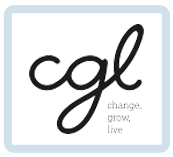
CGL Hertfordshire
Telephone: 01992 500 161
Address: Yeomans Court, Ware Road, Hertford, SG13 7HJ - https://www.changegrowlive.org/content/spectrum-hertfordshire-drug-alcohol-services-hertford
Our Hertford service is also open to people living in Waltham Cross, Ware, Cheshunt and Bishops Stortford.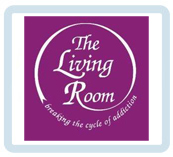
Living Room Herts
Telephone: 0300 365 0304
Address:8-10 The Glebe, Chells Way, Stevenage, Herts SG2 0DJ - https://www.solent.nhs.uk/news_item.asp?fldID=291
Our treatment centres in Stevenage and St Albans provides free intensive structured, abstinence-based, day treatment for adultsHow to Choose a Recovery Programme
Speaking to an addiction treatment expert or your GP is a good way to start. They should be able to help you understand your addiction and the options available for treatment. Before you agree to be treated in any facility, you should ask a range of questions.
For example, find out the duration of the programme, the credentials of the medical team, whether the facility is licensed, and so on. Also, it’s important to consider the cost of treatment; the treatments methods employed; the location of the facility; whether or not they offer treatment for co-occurring disorders; and the philosophy of the treatment centre.
Addiction Support Groups in Hertfordshire

Cocaine Anonymous:
A fellowship of men and women who share their struggles, strength, coping skills and hope with a goal to overcome cocaine addiction. They only require that potential members have a true desire to quit cocaine and other substance abuse. You can find more information about meeting dates and times here.
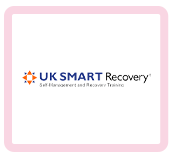
SMART Recovery:
An alternative to 12-step programmes for those who don't believe in a higher deity. This is a science-based programme that helps you manage addictive behaviour and addiction to substances.You can find more information about meeting dates and times here.
NA meetings in/near Hertfordshire
Narcotics Anonymous (NA) is a non-profit organisation comprising various individuals from different walks of life, who are in recovery from drug addiction.
It is a programme that promotes complete abstinence from all drugs and there are regular meetings in and around Hertfordshire which anyone in recovery can attend.
NA Meetings
Monday 7.30pm
St Paul’s Methodist Church
Turpins Rise
SG2 8QR
Thursday 8pm
Armstrong House
Norton Road
SG1 2LX
Friday 7pm
DENS Emergency Accommodation
Redbourne Road
HP2 7AZ
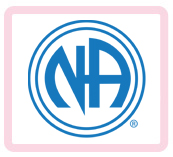
AA meetings in/near Hertfordshire
Alcoholics Anonymous (AA) is an international organisation focused on mutual understanding and support within a group of people suffering from the effects of alcohol addiction. These meetings are mostly attended by alcoholics but some do permit non-addicts.
There are regular meetings throughout Hertfordshire, including Rickmansworth, Bushey, Hertford and more…
AA Meetings:
Friday 1pm
St Alban & Stephen RC Church
14 Beaconsfield Rd
AL1 3RB
Wednesday 7.30pm
St Paul’s Methodist Church,
Turpins Rise
SG2 8QR
Saturday 2pm
The Baptist Church,
Chamber St
SG14 1PL
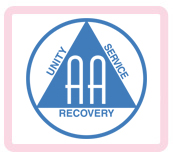
Addiction Counselling in/near Hertfordshire
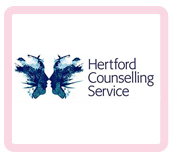
Hertford Counselling Service:
Based in the centre of Hertford, we provide counselling with qualified counsellors and therapists available to help you explore issues you want to resolve.
Address:Prince of Wales House, 3 Bluecoats Avenue, Hertford, SG14 1PB - http://www.counsellinghertford.co.uk/
Phone number: 01992 501850
Travelling to and from Hertfordshire
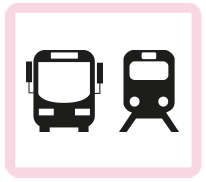
By Road: The quickest and cheapest way to get to Banbury from Hertfordshire is by car via the A422, taking about 90mins depending on which city/town/village you leave from

 Services offered by Banbury Lodge Rehab
Services offered by Banbury Lodge Rehab Where is Banbury Lodge Based?
Where is Banbury Lodge Based? What Does Rehab Cost?
What Does Rehab Cost?

